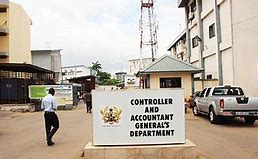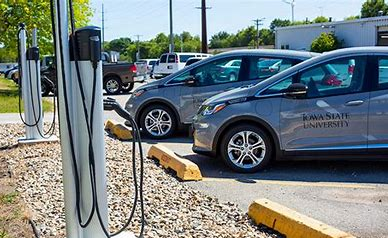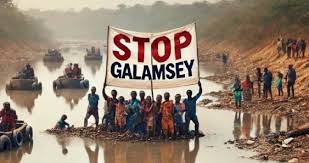Ghana, a West African nation known for its rich cultural heritage and natural resources, is currently facing one of the most severe economic crises in its history. With inflation soaring to over 40 percent, the country’s economy is under immense pressure. In this article, we will explore the causes and consequences of Ghana’s economic crisis, delve into the impact on various sectors, and discuss potential solutions to mitigate the situation. Join us as we uncover the challenges faced by Ghana and examine the steps being taken to address this critical issue.
Heading 1: Understanding Ghana’s Economic Crisis
Ghana’s economic crisis is rooted in a complex interplay of internal and external factors. The high inflation rate, exceeding 40 percent, has eroded the purchasing power of Ghanaians, making it increasingly difficult for them to afford basic necessities. This economic turmoil has ripple effects across various sectors, impacting businesses, employment, and the overall standard of living.
Heading 2: Causes of Ghana’s Economic Crisis
Several factors have contributed to Ghana’s current economic predicament. Let’s explore some of the key causes:
Sub-heading 1: Weak Fiscal Management
Inefficient fiscal management has been a longstanding issue plaguing Ghana’s economy. High government expenditure, coupled with inadequate revenue generation, has resulted in budget deficits and increased borrowing. The lack of effective fiscal policies has further exacerbated the economic crisis.
Sub-heading 2: Currency Depreciation
Ghana’s currency, the Ghanaian cedi, has experienced significant depreciation in recent years. This depreciation has led to a surge in import costs, pushing up prices of goods and services in the country. The devaluation of the currency has also eroded investor confidence, hindering foreign direct investment.
Sub-heading 3: Energy Crisis
Ghana has faced recurrent power outages and energy shortages, adversely impacting businesses and industries. The unreliable energy supply has disrupted production processes, leading to reduced output and increased costs. The energy crisis has further strained the economy, exacerbating the overall economic situation.
Heading 3: Consequences of the Economic Crisis
The economic crisis in Ghana has far-reaching consequences across various sectors. Let’s delve into some of the major repercussions:
Sub-heading 1: Unemployment and Poverty
High inflation and economic instability have resulted in widespread unemployment and increased poverty rates. Many businesses have been forced to downsize or shut down, leading to job losses and reduced income opportunities. The rising cost of living has pushed more Ghanaians below the poverty line, exacerbating social inequality.
Sub-heading 2: Declining Business Confidence
The economic crisis has significantly affected business confidence in Ghana. Investors, both domestic and foreign, are hesitant to make long-term commitments in such an uncertain economic environment. This lack of confidence hampers economic growth and stifles entrepreneurship and innovation.
Sub-heading 3: Strained Social Services
The strain on the economy has also impacted social services such as healthcare and education. Limited resources and funding constraints make it challenging for the government to provide adequate services to the population. This further exacerbates social inequalities and hinders human development.
Heading 4: Sectorial Impact of the Crisis
The economic crisis has had a profound impact on various sectors in Ghana. Let’s examine how key sectors have been affected:
Sub-heading 1: Agriculture
Agriculture, a vital sector in Ghana’s economy, has been hit hard by the crisis. High inflation has led to increased input costs for farmers, making it difficult for them to sustain their livelihoods. Furthermore, the depreciation of the currency has impacted agricultural exports, reducing foreign exchange earnings.
Sub-heading 2: Manufacturing
The manufacturing sector has faced numerous challenges as a result of the economic crisis. Rising inflation and energy shortages have disrupted production processes, leading to reduced output and increased costs. This has hampered the competitiveness of Ghanaian manufacturers both domestically and internationally.
Sub-heading 3: Tourism
Ghana’s tourism industry, once a vibrant source of revenue, has suffered a severe blow due to the economic crisis. The high inflation rate has made travel and accommodation more expensive, deterring tourists from visiting the country. The decline in tourist arrivals has had negative implications for businesses reliant on tourism and employment in the sector.
Heading 5: Addressing Ghana’s Economic Crisis
While the economic crisis in Ghana poses significant challenges, efforts are underway to address the situation. Let’s explore some of the measures being taken:
Sub-heading 1: Fiscal Reforms
The Ghanaian government has initiated fiscal reforms aimed at improving revenue generation and expenditure management. This includes measures such as reducing wasteful spending, enhancing tax collection systems, and promoting transparency and accountability in public finances. These reforms are crucial for stabilizing the economy and restoring investor confidence.
Sub-heading 2: Monetary Policy Adjustments
The Bank of Ghana, the country’s central bank, has implemented monetary policy adjustments to curb inflation and stabilize the currency. These measures involve tightening monetary policy, increasing interest rates, and managing liquidity in the financial system. These actions aim to rein in inflation and restore stability to the economy.
Sub-heading 3: Investment in Infrastructure
Investments in critical infrastructure, such as energy and transportation, are being prioritized to address the challenges faced by Ghana. Improved energy supply and efficient transportation networks are essential for attracting investments, promoting business growth, and boosting overall economic development.
Frequently Asked Questions (FAQs)
FAQ 1: What is the current inflation rate in Ghana?
Answer: Ghana is currently battling an inflation rate of over 40 percent, which is significantly higher than previous years.
FAQ 2: How does high inflation impact the average Ghanaian?
Answer: High inflation erodes the purchasing power of the average Ghanaian, making it more challenging to afford essential goods and services. It also contributes to rising costs and increased social inequality.
FAQ 3: Is the economic crisis limited to Ghana alone?
Answer: While Ghana is currently facing a severe economic crisis, it is important to note that other countries in the region have also experienced economic challenges. However, the specific causes and consequences may vary from country to country.
FAQ 4: What steps can individuals take to cope with the economic crisis?
Answer: Individuals can explore strategies such as budgeting, saving, and seeking additional sources of income to cope with the economic crisis. It is also crucial to stay informed about the situation and adapt financial plans accordingly.
FAQ 5: How long is it expected for Ghana’s economy to recover from the crisis?
Answer: The timeline for economic recovery depends on various factors and cannot be accurately predicted. However, with concerted efforts and effective policies, it is possible to steer Ghana’s economy toward stability and growth in the long run.
FAQ 6: What role can international support play in mitigating Ghana’s economic crisis?
Answer: International support in the form of financial assistance, technical expertise, and partnerships can provide valuable resources and knowledge to help Ghana navigate its economic challenges. Collaborative efforts between Ghana and international stakeholders are crucial for addressing the crisis effectively.
Conclusion
Ghana is currently grappling with its worst economic crisis in decades, with inflation soaring above 40 percent. This crisis has had severe consequences on various sectors, including agriculture, manufacturing, and tourism, while also impacting the livelihoods of individuals. However, through fiscal reforms, monetary policy adjustments, and investments in critical infrastructure, Ghana is working toward mitigating the crisis and restoring stability to its economy. With concerted efforts and international support, Ghana can overcome its economic challenges and pave the way for sustainable growth and development.
















